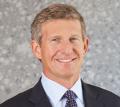As an attorney, you are paid to constantly anticipate worst-case scenarios. Let your clients indulge in pie-in-the-sky thinking; down here on earth, reality exerts a gravitational pull that keeps you grounded. A more than passing familiarity with life's outrageous slings and arrows and a healthy respect for tort law counsels prudence. Even better, laboratory experiments have proven repeatedly that pessimists are indeed more "realistic" than optimists. So far, so good.
But all of this negativity takes a toll. Attorneys are one of the least satisfied groups of professionals around. So: a quick salve, or a quack salve, depending on your viewpoint. Rosalene Glickman, Ph.D., would like to teach you "How to be Your Best Self," in her popular book, Optimal Thinking. This Australian psychotherapist has the impertinence to suggest that she can teach you a better way to think. For those who recoil with horror at the idea that pop psychology has invaded this hallowed ground... you are crying over spilled milk. The truth is, the citadel of "thinking" was breached long ago, and slapped on its burnt walls like aluminum siding are deplorable heuristics that are anathema to solvency, sobriety, and sense.
Glickman's thesis can be boiled down to the following: when thinking through a range of possible contingencies, do you habitually focus on, and choose, the best outcome available? Or do you settle for less? Let's take a mundane example. If you are considering what to eat for dinner tonight, do you ask yourself what would be the best possible thing to pass your lips, or merely what would be good? Or, if you are a morbid pessimist, do you ask yourself what would be unlikely to cause food poisoning? If you are like most folks, attorneys or not, you tend to think in terms of what would be good. And so, voila, you are guilty of sub-optimal thinking. Writ large, this masochistic bent for mediocrity is depriving you of, ahem, being "extraordinary."
How, you may wonder, does optimal thinking differ from positive thinking? A glib answer would be that optimal thinking is not only "better," it is, by definition, "best." But let us consider why. Laudably, the author does not shy away from the importance of considering negatives when thinking through anything. Positive thinkers are loath to acknowledge possible negative outcomes even when they are speeding to a spectacular train wreck (cf, the "dot com" era). At its worst, the whole positive thinking "movement" could be accused of trading the rose-colored spectacles of optimism for a comfortable pair of blinders. A person thus partially blinded may be headed for catastrophe because he or she refuses, on principle, to consider the possible negative contingencies that inhere in any given course of action.
Perhaps another practical example would help here. If you mentioned to a positive thinker that his fanatical exercise regimen appeared to be taking a toll on his good humor, aggravating his arthritis, or generally running him down, you are liable to be ignored at best, or, if it was said to a character from American Beauty, shot. Instead of cursing you for "being negative," Glickman would have you "embrace the negative," whatever that means. But I think I know. She is telling you not to wear those blinders, and then focus on how to get to what is best in your field of vision.
Of course, her thesis presupposes that thinking is something you really can control. Is optimal thinking something you can turn on and off? The answer appears to be yes. Think of a ship trying to circumnavigate the earth for the first time. You are Captain Francis Drake on the Golden Hind. Your navigator is a recalcitrant pessimist, and for that you are grateful. He has managed to keep you from running aground, except the once, and frankly someone needs to lose sleep over all of the things that could, and have, gone wrong. You ignore his jibe that your estate faces a class action from the soon-to-be bereaved families of your crew, whom you took with you to the brink of the abyss. As a parting shot, he says nobody will believe your tale, and even if she does, no one will know where you landed on the coast of Northern California. And of course he was right. But the point is that you did make the journey, and it would have been impossible without an optimal blend of optimism and realism. (NB: The author does not define optimal thinking in this way.)
While Glickman's questions are focused on what is best, hers is not optimal prose. Like others of its genre, the book dashes along with breathless exuberance. For those of a saccharin sensibility, this type of prose may exhilarate, in the way that a Tab cola did in the Seventies. Exclamation points rampage through the text like oversexed rabbits. Someone needs to inform the author that overstatement is not the optimal road to credibility. Occasionally, the book veers into self-parody, then winches itself out of the ditch with a worthwhile observation or question for you to ponder.
For the dyed-in-the-wool pessimist, it is easy to scoff at those who try to improve their lot in life. There are undoubtedly good things about being a professional pessimist (which is quite different than a pessimistic professional). Conversely, if you are a positive thinker, and you discover that the rocket ship you have just strapped yourself into has no navigational controls, it is worth remembering her admonition to "embrace the negative." At its best, her book gives you those controls, in the form of questions to ask yourself.
Optimal Thinking has a great deal of provocative questions, and you may find, as I did, some of them useful. Nevertheless, whether or not you buy Optimal Thinking, or even buy into it, the book is unlikely to instill wisdom, which, alas, eludes so many of us.




